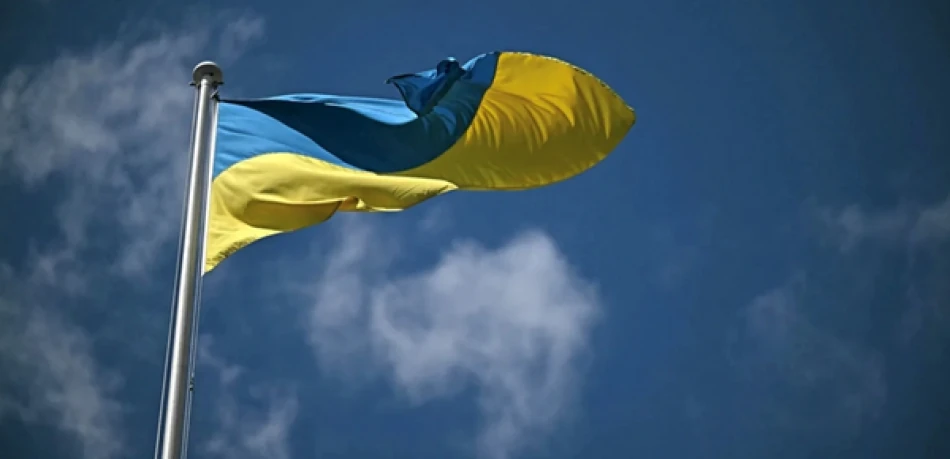
European Leaders Reiterate: Ukraine's Fate Cannot Be Decided Without Its Involvement Ahead of Alaska Summit
Europe Demands Seat at the Table as Trump-Putin Summit Looms Over Ukraine's Fate
Major European powers have drawn a firm diplomatic line ahead of anticipated talks between Donald Trump and Vladimir Putin, insisting that any meaningful peace negotiations over Ukraine must include Kyiv's direct participation. The coordinated pushback comes as Washington weighs inviting Ukrainian President Volodymyr Zelensky to join discussions that could reshape the conflict's trajectory after nearly three years of war.
European Unity Against Bilateral Deal-Making
Leaders from the United Kingdom, France, Germany, Italy, Poland, Finland, and the European Commission issued a joint statement emphasizing that no substantive negotiations can proceed without Ukraine's presence and participation. The declaration represents a calculated attempt to prevent Trump and Putin from negotiating over Ukrainian territory without Ukrainian input—a scenario that has haunted European capitals since Trump's electoral victory.
The European stance reflects hard-learned lessons from history. Past attempts at great power bargaining over smaller nations, from the 1938 Munich Agreement to Cold War spheres of influence, have left deep scars in European diplomatic memory. By positioning the current front lines as merely "a starting point for negotiations" rather than accepted boundaries, European leaders are signaling they won't accept a frozen conflict solution.
Trump's Diplomatic Balancing Act
The Trump administration faces a complex diplomatic puzzle. While NBC News reports that discussions continue about inviting Zelensky to Alaska for potential talks, the White House is currently focused on planning the bilateral meeting that Putin has requested. This sequencing reveals the inherent tension in Trump's approach—his desire for direct engagement with Putin while managing European allies and Ukrainian expectations.
Trump's campaign promises to end the war "in 24 hours" now confront the reality of entrenched positions and complex territorial disputes. Unlike his first presidency, when Ukraine was a secondary concern, the conflict now represents the defining European security challenge of the decade.
Military Reality Shapes Diplomatic Leverage
The diplomatic maneuvering occurs against a backdrop of intensifying military action. Russia's defense ministry reported intercepting and destroying 121 Ukrainian drones overnight in what it described as the largest such attack to date, targeting regions from Krasnodar to occupied Crimea. This escalation pattern—where military pressure accompanies diplomatic overtures—mirrors tactics both sides have employed throughout the conflict.
The timing is significant. Both Russia and Ukraine appear to be positioning for maximum leverage before any potential negotiations, leading to increased attacks despite diplomatic activity. This dynamic suggests that any peace talks will occur amid ongoing hostilities rather than a ceasefire framework.
Strategic Implications for Global Order
The European insistence on Ukrainian participation reflects broader concerns about the post-war international order. European leaders explicitly reaffirmed their commitment to the principle that international borders cannot be changed by force—a foundational element of the UN Charter-based system established after World War II.
For European security architecture, the stakes extend far beyond Ukraine. A settlement that rewards territorial conquest through military force could embolden other revisionist powers and undermine the credibility of security guarantees across the continent. Poland and Finland's participation in the joint statement is particularly noteworthy, given their direct borders with Russia and acute security concerns.
Economic and Military Commitments Continue
Despite welcoming Trump's efforts to "stop the conflict," European leaders emphasized their continued military and financial support for Ukraine. This dual approach—diplomatic engagement coupled with military backing—aims to strengthen Ukraine's negotiating position while demonstrating European resolve to the new U.S. administration.
The European position creates both opportunities and constraints for Trump's diplomacy. While European support provides additional leverage against Russia, it also limits Trump's flexibility to make unilateral concessions. The challenge will be crafting an approach that satisfies European concerns about process while delivering the dramatic breakthrough Trump has promised his domestic audience.
Most Viewed News

 Layla Al Mansoori
Layla Al Mansoori






